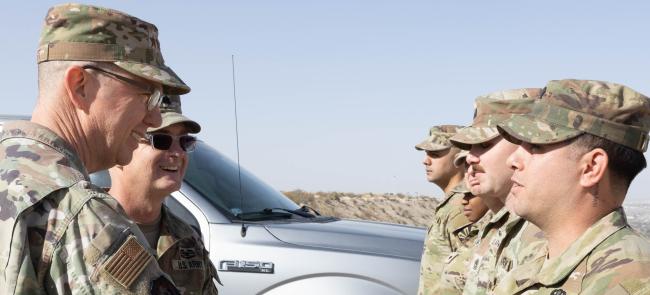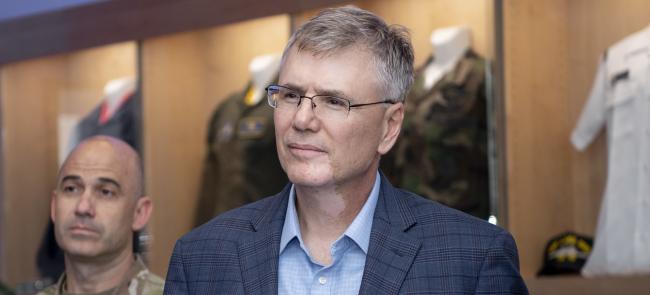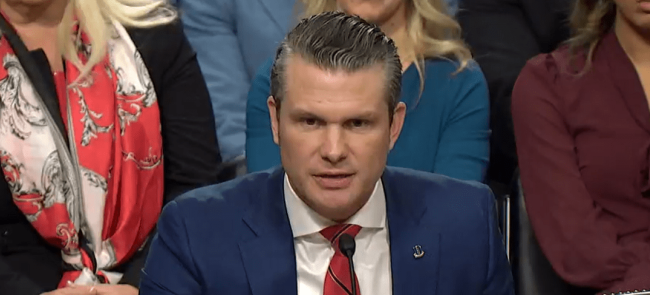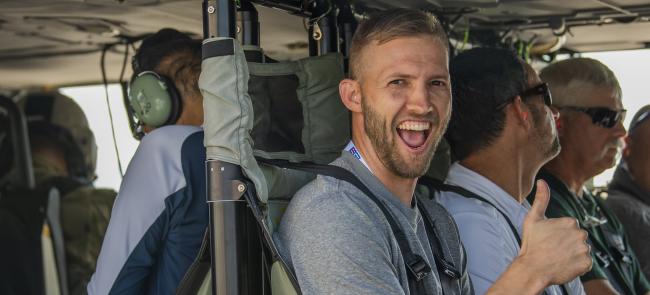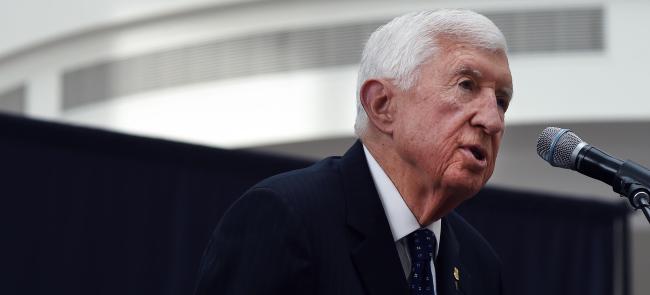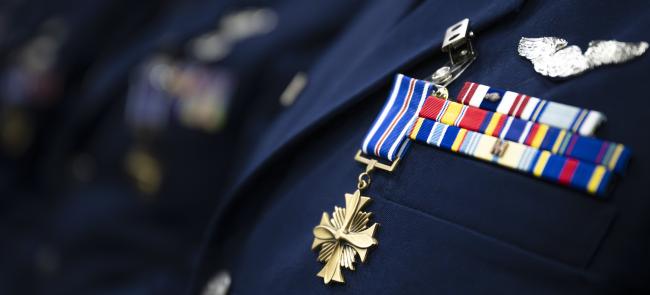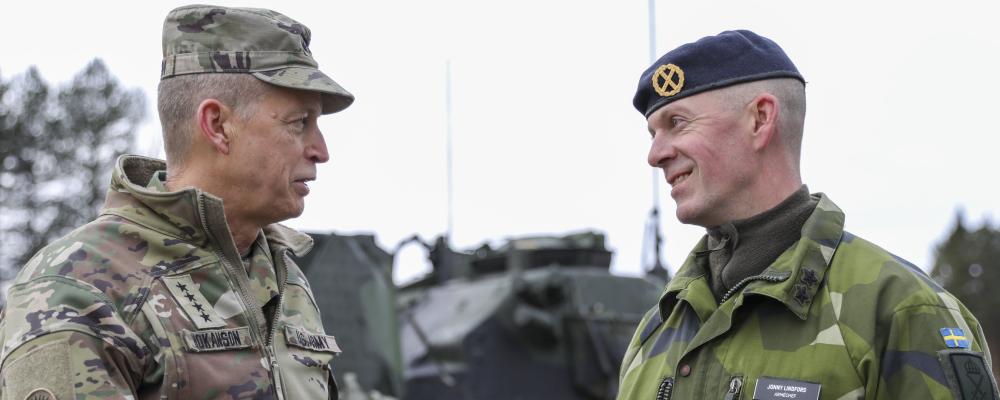
Gen. Daniel R. Hokanson — the chief of the National Guard Bureau — says a Guard program that strengthens America’s ties with its allies can grow.
Hokanson adds the State Partnership Program could support a double-digit increase in partnerships between the nation’s 54 Guard organizations and countries overseas.
Expanding the SPP could improve the military abilities of U.S. allies and boost the morale of Guardsmen with opportunities to train and travel abroad.
"We probably have the capacity for 20 more partnerships with current resources," Hokanson told Military.com in an interview published Friday.
"We allow all states to apply and make the case why they would be the best fit for that country," Hokanson —who is also a member of the Joint Chiefs of Staff — noted of the SPP’s application process.
Created in 1993, the SPP revolves around the Guard improving the nation’s diplomatic and military ties with the program’s partner nations worldwide.
The SPP now has a $45 million annual budget covering 106 partnerships between foreign countries and Guard organizations, Military.com reported.
The Pentagon will begin sorting through new potential SPP partnerships at the end of summer, Military.com continued.
Any new SPP partner nations will then be paired with the Guard’s organizations across America, Military.com added.
But Military.com noted it is not clear which nations — or how many — the Guard may partner with to expand the SPP.
Hokanson said Russia’s invasion of Ukraine in February 2022 has increased global interest in joining the SPP.
For example, Sweden’s military entered into a joint military training agreement with the New York Guard on July 12 as part of the SPP.
Sweden’s entrance into the SPP followed Finland linking up with the Virginia Guard through the program in May.
Sweden and Finland also joined NATO earlier this year after applying to join the military alliance in May 2022 following Russia’s invasion of Ukraine.
"Even though they’re neutral, they see the value in developing training relationships with the Guard," Hokanson said of Sweden, which had long practiced diplomatic neutrality before joining the SPP and NATO.
NATO emerged in 1949 as a response to the Soviet Union’s aggression following World War II.
The SPP also has ties to the Soviet era, with the program’s founding partners including Latvia, Lithuania and Estonia, all former Soviet bloc nations.
Most of the SPP’s first participants were new to Western democracy, so the SPP aimed to show these countries how civilian control of the military benefits societies.
Today, the SPP is a major tool in U.S. foreign policy during a time when the nation’s military sees great power competition with China and Russia ahead.
While some SPP nations are NATO members, others reside in central Asia or the Pacific region, areas which are critical for the United States to compete with China in.
The SPP typically involves joint training exercises, with Guard units hosting military personnel from partner nations or working with these personnel in their homelands.
In July 2023, the SPP celebrated its 30th anniversary a month after reaching 100 partnerships worldwide.
In March, Hokanson announced Palau, Saudi Arabia, Sierra Leone and Tanzania would be joining the SPP alongside Finland and Sweden.
Hokanson plans on retiring at the beginning of August and has repeatedly championed the SPP during his tenure as NGB chief.
— By Mark Hensch

